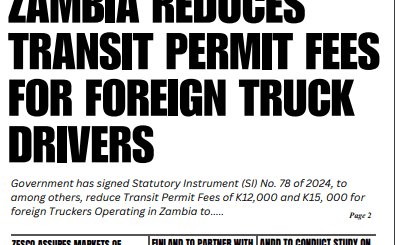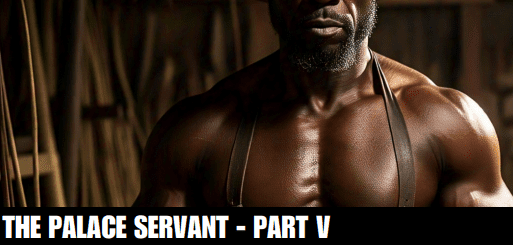The Slippery Slope of Our ConCourt and it’s Judges
Last evening, when I heard that three Constitutional Court judges had been removed by the president, I was taken aback. In a democracy like Zambia, this kind of political interference sends shockwaves through the very foundations of justice.
Constitutional office bearers, especially judges, are the custodians of justice, and their security of tenure should be beyond reproach. But here we are—on a slippery slope, where the independence of the judiciary is under siege, and politics seems to overshadow the rule of law.
Judges serve as the guardians of justice, entrusted to uphold the Constitution without fear or favor. The decisions they make have far-reaching implications for democracy. Yet, what has become evident is that political interference in the judiciary is no longer subtle; it is brazen.
The removal of these judges is just the latest episode in a long history of political machinations involving the judiciary. It’s not the end, more is to come if no reforms are done.
The backdrop of this case is familiar to many Zambians. These very judges presided over the controversial 2016 presidential election petition. Hakainde Hichilema, then the opposition leader, filed a petition challenging the legitimacy of Edgar Lungu’s victory.
The court, however, dismissed the petition on a technicality: the issue of time. Rather than considering the substantive allegations of vote rigging and irregularities, the court got entangled in the interpretation of the constitutionally mandated 14-day period for hearing the petition.
Was it 14 literal days, or did weekends and non-working days need to be excluded? The court’s majority ruled strictly: the 14-day period had elapsed. However, there were dissenting opinions, with Justices Hildah Chibomba and Margaret Munalula arguing that a presidential election petition should not be thrown out on a technicality.
The dismissal of the petition sowed deep mistrust in the judiciary. The judiciary’s role is not only to interpret the law but also to ensure justice is served. Yet in this case, many felt justice had been sacrificed at the altar of technicality, and the political fallout was immediate.
As the country moved forward, the scars of the 2016 election petition remained fresh, setting the stage for what was to come.
In a country that boasts a democratic constitution, the trajectory of judicial decisions following the 2016 petition has shown an unsettling pattern.
In the lead-up to the 2021 elections, President Lungu’s eligibility became a subject of intense debate. The Constitution limits a president to two five-year terms, but Lungu’s allies found a legal loophole. His first term, following the death of President Michael Sata, was less than three years. They argued that this did not count as a full term, allowing Lungu to run for re-election in 2021.
The Constitutional Court, in the case of Dan Pule v. The Attorney General, ruled that Lungu was eligible to contest the 2021 election. The court based its decision on the technicality that his first term did not meet the three-year threshold outlined in the Constitution.
What was strange however, was the postulation by the judges that they relied on the constitution before amendment and the constitution after amendment. They claimed the period saddled two constitutional periods and thus, they claimed the spirit of the constitution was to clearly define a term.
Once again, dissenting voices, like Justice Munalula, argued that this interpretation undermined the spirit of democratic term limits. The ruling fueled further disillusionment with the court, which appeared to bend under political pressure.
The judiciary had already been on shaky ground since the 2016 election petition. This latest ruling only reinforced the perception that political interests were shaping judicial decisions.
In the years that followed, the court saw more petitions challenging Lungu’s eligibility. Notably, Bampi Aubrey Kapalasa filed another suit to block Lungu’s third-term bid, but the court ruled the matter res judicata—meaning it had already been settled in the Dan Pule case.
In the case Legal Resources Foundation Limited & 2 Others v Edgar Chagwa Lungu & The Attorney General (CC 27 of 2021), the petitioners, which included the Legal Resources Foundation and other organizations, challenged the eligibility of President Edgar Lungu to contest the 2021 presidential election.
They argued that Lungu had already served two terms in office as stipulated under Article 106 of the Zambian Constitution and was therefore constitutionally barred from running for a third term.
The petitioners contended that Lungu’s first term in office began in 2015, following the death of President Michael Sata, and that his second term started after his election in 2016. They claimed that since Lungu had already held office twice, any attempt to seek another term in 2021 would be unconstitutional.
The Constitutional Court ruled that Edgar Lungu was eligible to run in the 2021 presidential election. The court held that Lungu’s first term, which began in 2015 after the death of President Sata, did not count as a full term because it lasted less than three years.
According to Article 106(6)(b) of the Zambian Constitution, a term of office is only considered a full term if the president serves at least three years. Remember, this was the clause inserted in the 2016 amended constitution.
As Lungu’s first term was incomplete (less than three years), the court ruled that it did not count towards the constitutional two-term limit. Therefore, Lungu’s election to a full five-year term in 2016 was considered his first full term, and he was eligible to stand for re-election in 2021.
While these legal battles unfolded, it became increasingly clear that the judiciary was being dragged into the political arena. Judges who once offered dissenting opinions began to fall in line, and the courage to challenge politically motivated rulings seemed to evaporate.
The judiciary, which should be a bastion of independence, began to appear complicit in the political schemes of the day.
The pattern is clear: judicial appointments are a tool for political control. Judges who are seen as aligning with the ruling party’s agenda are more likely to ascend to higher office. The vetting process has become a mechanism for ensuring that only judges who will “toe the line” are appointed.
The political interference we are witnessing now is the culmination of years of undermining the independence of the judiciary.
This is not just a problem for the judiciary; it is a threat to our entire democratic system. When judges become instruments of political power, the checks and balances that are supposed to protect citizens from tyranny break down.
The decisions of the Constitutional Court affect every Zambian, yet these decisions are increasingly driven by political expediency rather than a commitment to justice.
The amendment to the Constitution in 2016, which allowed for the ambiguity surrounding presidential terms, was a masterclass in constitutional manipulation.
The drafters inserted clauses that were deliberately vague, ensuring that when the time came, the judiciary could interpret the law in a way that favored the ruling party. This manipulation has set Zambia on a dangerous path—one where constitutional crises are no longer hypothetical but inevitable.
What we are witnessing is the judiciary being caught in the crossfire of political battles. It is no coincidence that dissenting opinions have diminished over time.
Judges know that going against the grain comes with consequences. They risk being labeled as politically incorrect or, worse, facing removal from office—as we have seen in the recent dismissal of the three Constitutional Court judges.
This is not an indictment on the current administration but a clear demonstration that decisions made in haste and jest to protect the interests of one set of political leaders, could easily turn subsequent leaders into looking like villains.
Looking ahead, the future does not inspire confidence. The upcoming constitutional cases are likely to be just as politically charged as those of the past. The court may appear to remedy past wrongs, but the underlying issue remains: our judiciary is no longer independent.
The solution to this constitutional crisis is clear. We must remove judicial appointments from the hands of the executive. A Judicial Appointments Committee should have the sole authority to nominate judges, with parliament playing a role in scrutinizing and ratifying these appointments. The president’s role should be ceremonial, limited to formalizing appointments. Only then can we hope to restore the independence of our judiciary.
The judiciary is supposed to be the great equalizer—the institution that ensures that all citizens, rich or poor, powerful or powerless, are treated equally under the law. But as long as political interests control judicial appointments and decisions, this ideal will remain out of reach.
Zambia deserves better. The rule of law deserves better. The people of Zambia deserve a judiciary that will stand up to political pressure and protect the Constitution, rather than bending to serve political ends. If we continue down this slippery slope, the battle for justice will be lost, not in the court of law, but in the court of politics.
Our democracy cannot afford to lose this battle. The question is, will the judiciary rise to the challenge or continue its descent into political complicity? The answer will shape the future of Zambia’s democracy.








